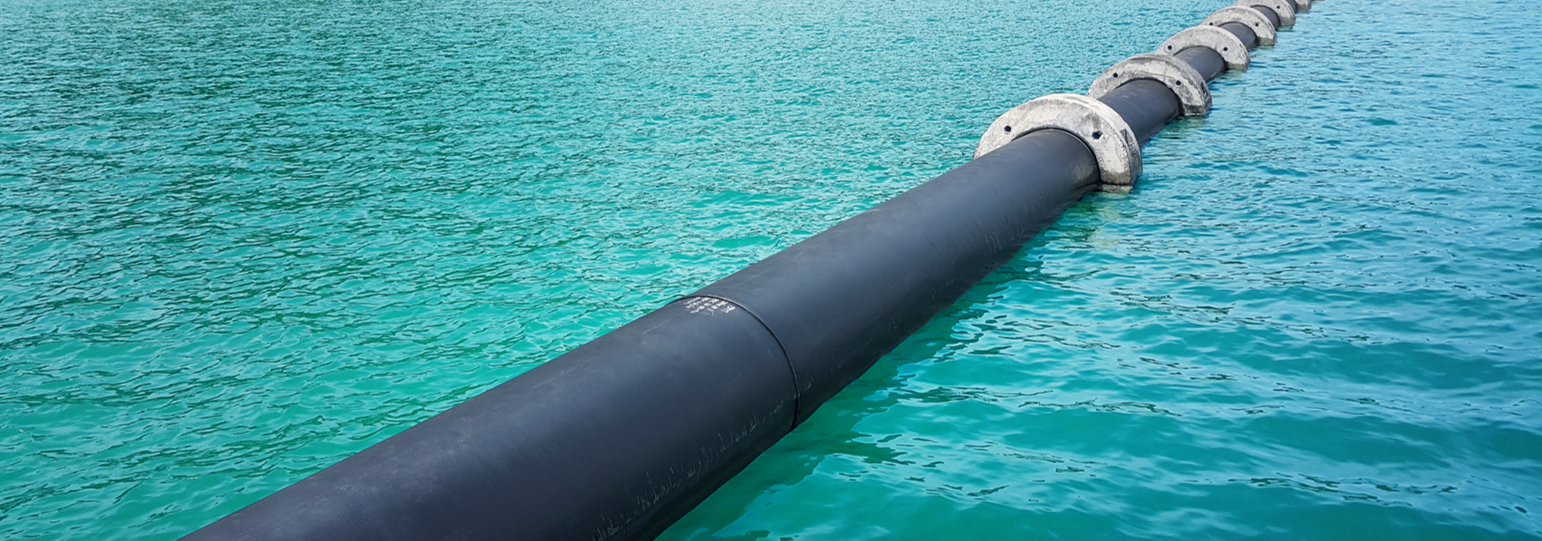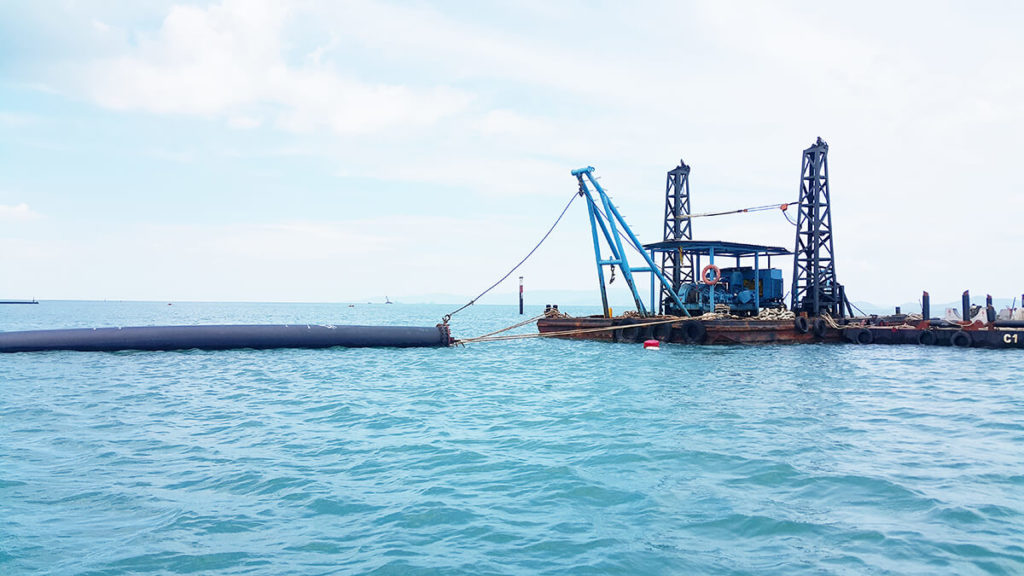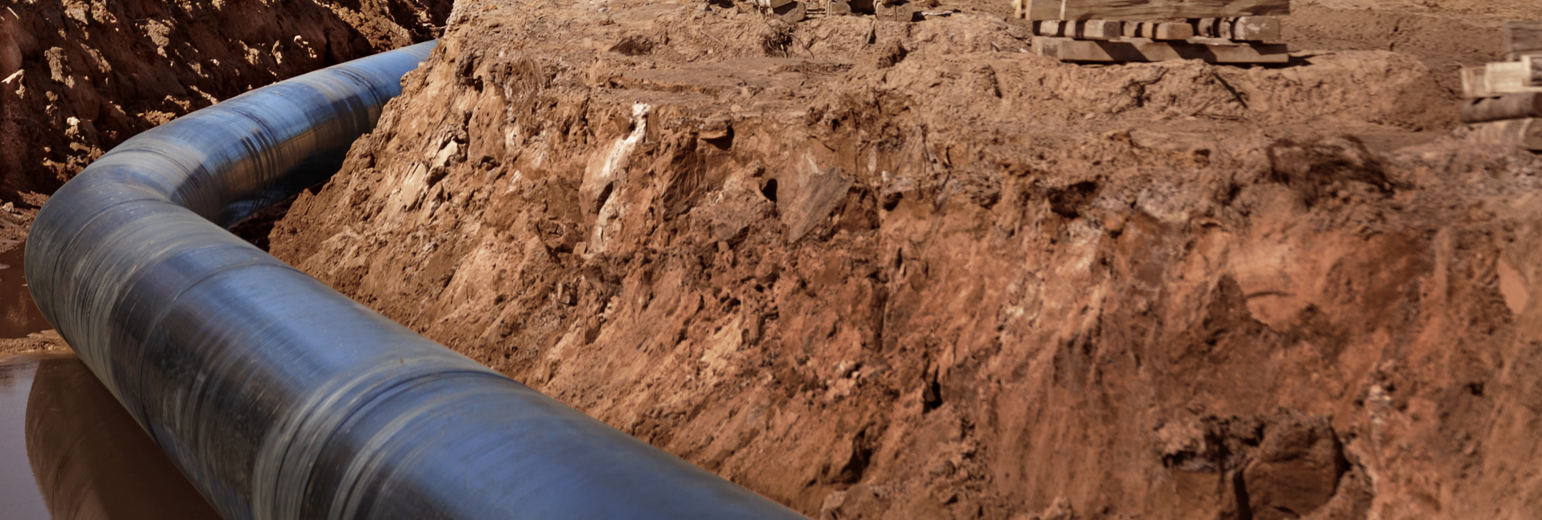In the face of relentless societal, economic, and environmental changes, SCG Chemicals, or SCGC, never ceases to innovate and develop chemical innovations that cater to the demands and emphasize business operations in line with ESG (Environmental, Social, and Governance) and the Circular Economy.
Particularly in today's world, these changes are tied to five megatrends, one of which is urbanization — the significant expansion of urban societies. This phenomenon, resulting from the aggregation of large populations into sizable urban communities, can occur due to the spread of urban prosperity from central cities to other areas. This transition fundamentally reshapes people's livelihoods and profoundly transforms economic and societal development.
SCGC, a leading integrated chemical player in ASEAN for sustainability, has created and developed innovative chemical products for industrial pipes. This plays a vital role in efficiently accelerating infrastructure expansion while also elevating the quality of life in communities, making them more convenient and comfortable.
----------------------------------------------------------------------------------------------------------------------------------------
MORE STORIES FROM SCGC:
✓ DOWNLOAD! 2022 Sustainability Report
✓ Explore the Story of SCGC Sustainovations
✓ Parallel Worlds of 'Paper' and 'Plastic'
----------------------------------------------------------------------------------------------------------------------------------------
High-Pressure Water Pipe
Water, in addition to being crucial for human survival, is also an essential component for industrial growth and a sustainable driving force in the economy. Therefore, high-quality and efficient water transmission pipelines are an utmost necessity. SCGC has created and developed the HDPE (High-Density Polyethylene) chemical innovation for producing water transmission pipelines that comprehensively addresses three current and future trends.

In terms of material science, while safety throughout the lifespan remains essential, polymer materials for water transport in today's world need to consider increased strength. They should withstand higher water pressures and have a higher Hazen-Williams Coefficient, where a higher value signifies a smoother pipe surface and a higher flow rate. High-Density Polyethylene or HDPE pipes maintain these values throughout their lifespan, compared to metal pipes, which can significantly decrease due to changing environmental factors. Furthermore, water transmission pipelines must be resistant to chemicals, such as chlorine, used in water treatment processes. Another important characteristic in the material science sphere is the material's recyclability at the end of its lifespan.
Trenchless technology is another pipeline construction trend that is gaining widespread popularity. Sometimes this technique is referred to as micro tunneling, especially for tunnels or pipes with a diameter of 1 meter or more, using remote control systems installed on the ground. This method is popular in Europe because it requires less labor for installation and reduces energy and resource consumption, resulting in lower greenhouse gas emissions. This differs from traditional pipe digging, which involves opening a long trench route, causing traffic disruptions. Therefore, the materials used for pipeline connections using trenchless technology must be even more robust and resilient to ensure pressure resistance and long-term durability.

Integrating digital solutions into water transport pipelines is another significant trend gaining ground because it enhances water transportation efficiency while monitoring potential risks within the water transmission system. Therefore, the polymers used in the production of water transmission pipelines must also accommodate integration with digital solutions and data analysis.
SCGC has launched the PE100RC grade H1000PCH resins to manufacture HDPE pipes, aligning with the urbanization-driven megatrend of infrastructure changes. It allows for the installation of pipelines using trenchless technology, which reduces the common urban issues of road digging for pipeline installation using traditional trenching methods. The product has been the first in ASEAN to be certified to the EN 1555-1 standard.
Mining Pipe
High-Density Polyethylene (HDPE) has been used in the mining industry for more than 30 years due to its durability against corrosion and ability to operate in damp environments. Being rust-resistant, HDPE pipes serve as an excellent choice and offer chemical resistance. Importantly, they are competitively priced and easy to install.
Beyond the aforementioned attributes, mining pipes made from HDPE must be designed from the outset to utilize fewer materials. Due to their extended lifespan, these pipes do not require replacement as frequently as other materials currently in use. This contributes to reducing greenhouse gas emissions, all while producing a product that meets or exceeds standard features. Additionally, these products can be recycled once they reach the end of their lifecycle. These new-style mining pipes also support integration with digital solutions and data analysis to enhance production processes and maintenance.
SCGC™ HDPE plastic compound resins for pipe applications have been listed by the PE100+ Association, passing inspection and receiving certification from globally recognized agencies such as Element Material Technology, GOST, DIN, AENOR, LNE, INSTA, SIRIM, and KRV. For more information, please contact: pipe_compound@scg.com
Gas Transmission Pipe
In the gas transmission industry, resistance to the abrupt expansion of cracks, known as Rapid Crack Propagation (RCP), is an essential property that indicates a pipe's ability to mitigate cracks leading to leaks and other safety hazards. Using Polyethylene (PE) plastic resins for product transmission pipes is becoming a significant trend in the industry. This is due to the unique properties of PE that provide excellent durability and high resistance to Rapid Crack Propagation. This not only extends the lifespan of the pipe system but also effectively reduces maintenance costs.
Apart from the crucial RCP property, gas transmission pipes must withstand temperature and pressure effectively. Some operational areas for gas extraction operate at temperatures between 35 - 50 degrees Celsius. For safe and smooth raw material transportation, the transmission pipes need to endure these operational temperatures.
SCGC™ HDPE plastic resins are a high-density polyethylene product manufactured using the Bimodal process, a technology developed by Mitsui Chemicals Inc., Japan. They exhibit resilience against impacts, heat, and chemicals while also being flexible and easy to mold. For more information, please contact: pipe_compound@scg.com
Download the 2023 GAS PIPE TREND WHITEPAPER at https://bit.ly/3ZAL1zd
SCGC remains committed to creating chemical innovations, particularly High-Density Polyethylene (HDPE) plastic resins, to cater to the industry's needs and increase operational efficiency and competitiveness. At the same time, the polymer must address the challenges of improving the quality of life for people in society and promoting environmental sustainability.










